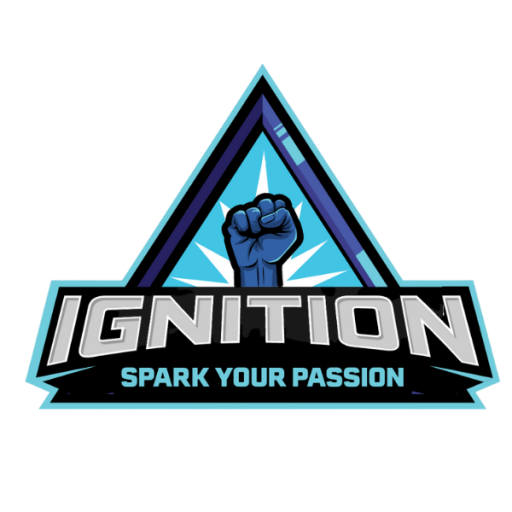For many people with autism or hidden disabilities, building communication skills can feel like a real challenge. Traditional approaches to communication development aren’t always engaging or accessible, which is why gaming can make such a difference. Through immersive, structured environments, games create space for meaningful social interactions, encourage confidence, and help develop skills to make real-world conversations easier and more comfortable.
Read on to discover how gaming can improve communication skills!
Why Gaming Can Improve Communication Skills
Gaming is a shared pastime for many young people, creating a common ground that can open doors to communication, friendship, and connection.
Games provide a structured, low-stress setting that encourages social interaction, helping players practice communication at their own pace. By using visual cues, consistent rules, and interactive environments, gaming can improve communication skills by offering an enjoyable way to engage in social practices that feel safe and accessible.
According to Filament Games, some of the key benefits of gaming for communication skills include:
- Collaborative problem-solving
- Adaptable communication styles
- Building empathy
- Non-verbal communication skills
- Confidence building
- Constructive feedback.
Cooperative Games: A Key to Communication Development
Games like Minecraft and Mario Party are excellent examples of how gaming can improve communication skills through cooperative play. In Minecraft, players often work together to complete tasks, build structures, or solve puzzles, which involves sharing ideas and planning actions. In Mario Party, participants collaborate and compete in mini-games, reinforcing social skills in a lively, interactive setting.

Cooperative gaming offers unique communication benefits, such as:
- Listening and responding: Learning to follow directions and contribute to group strategies
- Expressing ideas: Practicing verbal and nonverbal communication to achieve goals
- Problem-solving as a team: Strengthening collaboration through group challenges
These activities showcase how gaming can improve communication skills in a safe, encouraging environment that feels less intimidating than traditional social interactions.
Role-Playing Games and Confidence-Building
Role-playing games (RPGs) like Dungeons & Dragons are another example of how gaming can improve communication skills for individuals with autism or hidden disabilities. In RPGs, players will often come together to meet in person (like what we offer here at Ignition Gamers – learn more here), or online, participants assume different characters and engage in collaborative storytelling, encouraging them to communicate in a creative, low-stakes environment.
Whether they’re searching for hidden treasure, facing down fierce foes, or planning daring rescues, each quest offers an opportunity to connect, collaborate, and build lasting memories. Role-playing helps players develop conversational skills and confidence by letting them express ideas in a supportive space.
(TIP: Check out our post on Dungeons & Dragons for Autistic Players).
Benefits of RPGs for communication skills include:
- Practicing dialogue in character to reduce social anxiety
- Engaging in group strategy and story development
- Gaining confidence by interacting within a structured framework
- Developing social skills in a safe and non-judgmental environment
- Cultivating critical thinking, strategy development and finding innovative solutions to problems.
Through role-playing scenarios, players build essential social abilities that can enhance their confidence in real-world interactions.

Enhancing Nonverbal Communication Through Digital Games
Non-verbal communication is when you use body language, facial expressions, tone of voice and other visual signals rather than verbal communication.
Games like Overcooked are effective in demonstrating how gaming can improve communication skills by focusing on nonverbal communication. In Overcooked, players coordinate tasks to manage a chaotic kitchen, often relying on timing and visual signals rather than direct conversation. This setup helps players practice interpreting body language, gestures, and timing cues, which are critical aspects of nonverbal communication.
Benefits of digital games for nonverbal communication include:
- Improving focus and awareness of nonverbal cues
- Strengthening the ability to read body language and timing
- Developing patience and timing in task-based scenarios
With examples like Overcooked, we can see how gaming can improve communication skills by encouraging players to respond to nonverbal cues—a valuable skill in both gaming and real-life social interactions.
Social Skills Reinforced Through Gaming
Gaming sessions go way beyond just the game itself—they open up chances for real social connections. Players naturally chat about strategies, share fun moments, and have casual conversations before and after the game. It’s a great way to practice social skills in a relaxed setting, which can help boost confidence for real-life interactions. These little exchanges build comfort with socialising, making everyday conversations feel a bit easier.
Our participants don’t just game! They enjoy other regular social outings and activities together which goes a long way to.

Our participants don’t just game! They enjoy other regular social outings and activities together, which goes a long way to building lasting friendships, strengthening social skills, and creating a real sense of community. It’s all about having fun, feeling supported, and sharing experiences that help everyone grow.
Top Games for Boosting Communication Skills
Some of the top games that showcase how gaming can improve communication skills include:
- Minecraft – Known for its creative, open-ended gameplay, Minecraft encourages players to collaborate, share ideas, and work together on projects, promoting teamwork and clear communication.
- Among Us – This social deduction game requires players to work together, detect deception, and communicate under pressure, making it a fun way to practice strategy and communication.
- Keep Talking and Nobody Explodes – In this cooperative game, one player has a bomb to defuse while others give instructions. It encourages clear, concise instructions and active listening—an actual team-building experience.
- Overcooked! 2 – A fast-paced kitchen simulation game that requires players to work as a team, coordinate tasks, and communicate to keep up with orders. It’s a playful way to improve planning and cooperation.
- Jackbox Party Pack Games – Games like Quiplash and Drawful in the Jackbox Party Pack series are fun, lighthearted games that encourage players to share ideas, express creativity, and laugh together, building rapport and easing social anxiety.
- Dungeons & Dragons (D&D) – This classic tabletop RPG involves role-playing, storytelling, and group decision-making. It helps players build social skills by expressing ideas, negotiating strategies, and problem-solving together.
- Rocket League – For those who enjoy action, Rocket League combines fast-paced soccer with cars. It requires players to communicate, plan plays, and encourage each other in a supportive, competitive environment.
These games are a fun, easygoing way to work on communication skills, making them perfect for players who want to boost their social confidence in a relaxed, enjoyable setting.
Ignition Gamers: Supporting Gaming and Communication Skills Development
At Ignition Gamers, we’re all about the power of gaming to bring out the best in communication skills for autistic players and those with hidden disabilities. Our gaming sessions are set up to spark social growth, build confidence, and tackle real-life skills in a welcoming, community-focused space.








